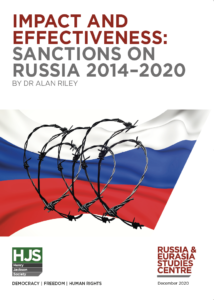 THE UK should take the opportunity of Brexit to consolidate and improve its regime of sanctions directed at rogue nations including Russia, according to this report.
THE UK should take the opportunity of Brexit to consolidate and improve its regime of sanctions directed at rogue nations including Russia, according to this report.
The gradual evolution of targeted sanctions at both a national and supranational level has left a patchwork of fragmented and incoherent sanctions in UK law. The UK — outside of the European Union — now, the author argues, has an opportunity and obligation to rethink its approach ensuring overlap with both European and US allies.
In reaching its conclusions, the report looks at the potted history of the development of sanctions against the Russian Federation since the invasion of Crimea in 2014.
It finds that both the sharp sanctions imposed in 2014 and slower-burning sanctions imposed later have had a significant impact in constraining and penalising the political elites within Russia.
However, over time, “the number and type of sanctions imposed against Russia for differing purposes and with different legal bases have increased”. The author claims that the complexity this creates constitutes a “compelling argument” for the West as a whole to revisit and consolidate their regimes.
The UK may, the author argues, be better placed because of Brexit to “become a source of sanctions innovation and to move more rapidly” than other European partners.”
Read the Report HERE
IN THE WORDS OF THE EXECUTIVE DIRECTOR:
“The UK, the EU, the US, and their allies can be proud of the transatlantic effort in recent years to hold Russia accountable. However, like all strategies, sanctions need regularly tweaking and updating to continue their bite.
A benefit of Brexit is that the UK now has the opportunity to demonstrate its global moral leadership by acting nimbly and decisively to keep Putin and his kleptocratic cabal under pressure.”
Dr Alan Mendoza


